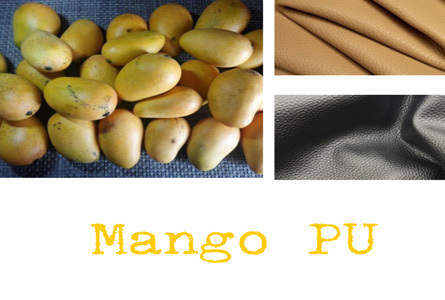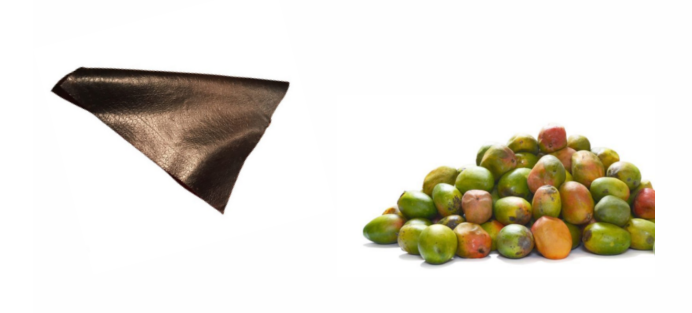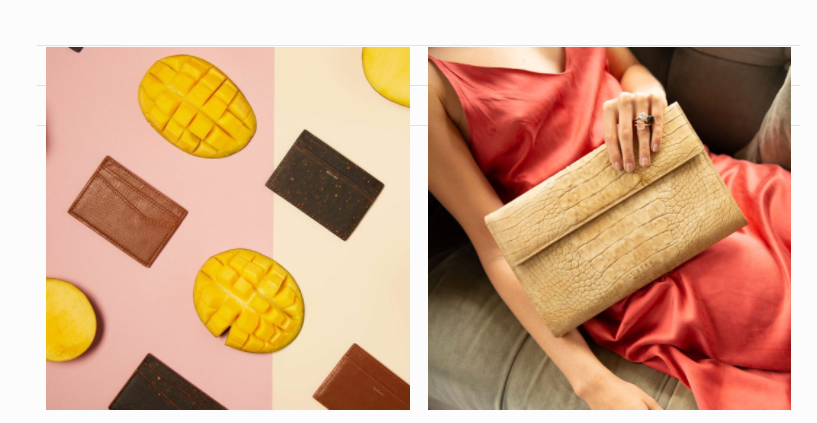13
2022
-
07
Mangoes Leather-Turning waste into treasure!
Turning waste into treasure! Dutch designer makes leather out of thrown away mangoe
As the mango trading center in Europe, the number of mangoes imported by the Netherlands accounts for more than half of the total imports in Europe every year. However, due to logistics or storage environment, many damaged and rotten mangoes are directly discarded, which causes waste and has a certain negative impact on the environment. Fruit leather, a Dutch start-up founded in 2015, put forward a new idea to solve this problem: recycle these discarded mangoes and make them into "vegan leather".
“Fruit leather” was co-founded by Hugo de Boon and Koen Meerkerk, two college classmates, both of whom graduated from Willem de Kooning academy in Rotterdam, the Netherlands with a major in interior design. During their college years, Hugo de Boon and Koen Meerkerk were very keen on discussing topics related to circular economy and how to use things defined as "useless" to create value.

From left to right: Kone Meerkerk and Hugo de Boon
They noted that the Food and Agriculture Organization of the United Nations (FAO) has released a set of data: the weight of discarded food worldwide is about 1.3 billion tons every year, equivalent to one-third of the total food production; About 45 percent of the fruit that farmers produce for consumption ends up being thrown away, and at that rate, about 30 percent of the world's agricultural land is used to produce discarded fruit. Waste fruits not only lead to waste of land resources, but also cause a series of environmental problems. According to statistics, in some developed countries, 10% of greenhouse gases are emitted in the process of producing these fruits that will eventually be discarded. At the same time, they also learned that, in the fashion industry, the use of animal leather has also caused a great negative impact on the environment. A set of data from People for the Ethical Treatment of Animals (PETA) shows that more than 1 billion animals are slaughtered every year in the world to obtain their fur, which produces about 650 million kilograms of carbon dioxide in the process of being cleaned and made into leather.

Therefore, Hugo de Boon and Koen Meerkerk, who have professional backgrounds in design, began to think about whether discarded food can be turned into wealth. With this idea, they moved into Blue city, a circular economy business incubation base in Rotterdam. They started their own experiments here. After many experiments, they thought that the leather made of mango had excellent softness and toughness, and as the largest mango trading country in Europe, the Netherlands had a large number of mangoes discarded every year, so they decided that the first product of Fruit leather was vegan leather made of mango.

At present, Fruit leather has reached a long-term cooperation with Total Exotics, a local mango import company in the Netherlands. This company imports 6 million kilograms of mangoes every year, but in the process of quality control, about 1,500 mangoes are thrown away every week. Fruit leather now sells for 49.99-60 euros per mango leather, and the price difference mainly depends on the size of the leather. The price of 56 × 38 cm is 49.99 euros, while the price of 60 × 40 cm leather is 60 euros. Hugo de Boon said that their goal is not to compete with the traditional leather industry. "We didn't set up Fruit leather not to completely replace traditional leather, but to provide another alternative for this industry".
[The above content is for reference only, XULI TEAM does not assume any legal responsibility for the authenticity, accuracy and completeness of the data and information collected and opinions held.]
Previous page
Next page




